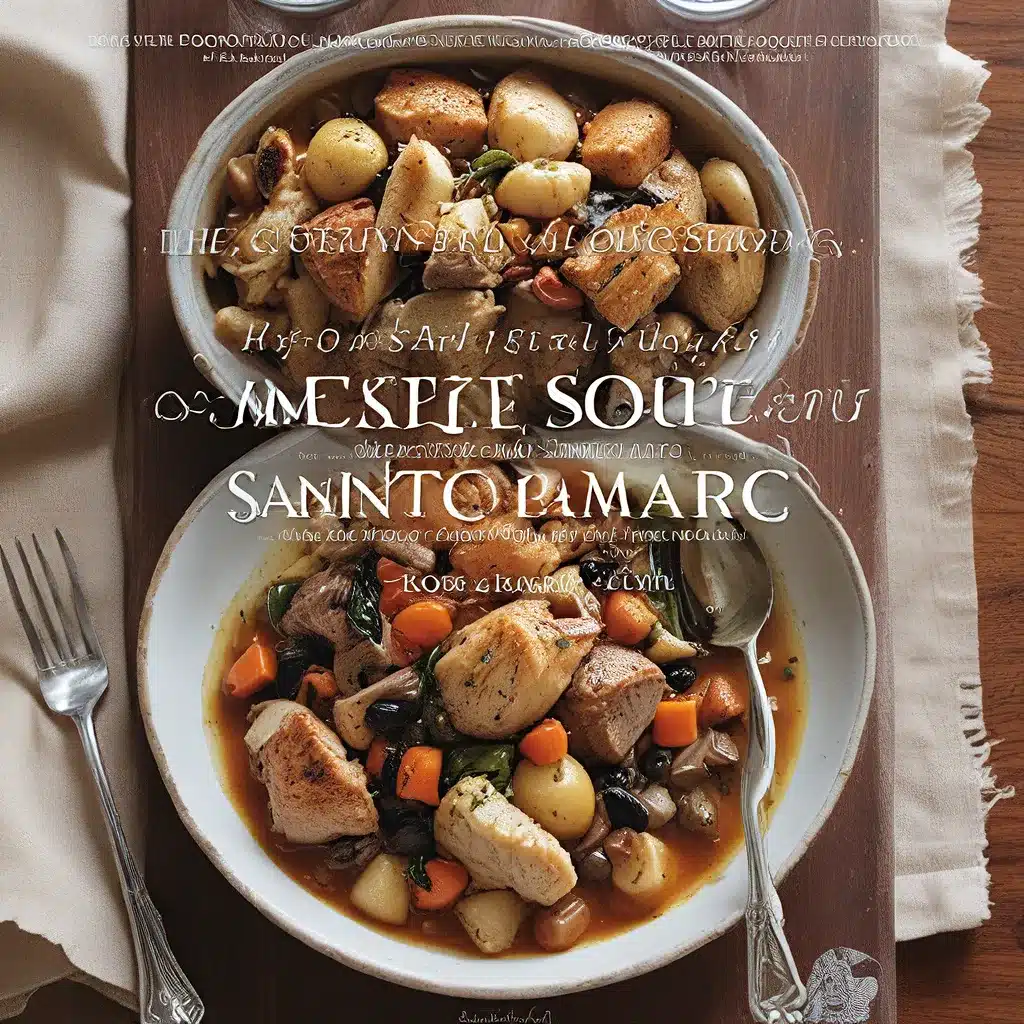
Unlocking the Culinary Magic of Saint Marc
As I step into the kitchen, the familiar aroma of garlic and simmering tomatoes instantly transports me to the vibrant flavors of Saint Marc’s renowned cuisine. This Italian-inspired culinary haven has long captivated food enthusiasts with its exceptional dishes, and now, I’m excited to share the secrets behind the magic.
Growing up, I was always intrigued by the rich tapestry of flavors that adorned every plate that came out of my mother’s kitchen. She had a knack for transforming the most humble ingredients into culinary masterpieces, and I’m here to let you in on her time-honored techniques.
Mastering the Foundations: Sauces and Shortcuts
One of the biggest revelations I had during my journey of rediscovering the joy of cooking was the power of universal cooking sauces. Instead of starting from scratch every time, I learned to prepare a few versatile sauces in advance and keep them frozen for a quick and flavorful base.
Take, for example, my mother’s signature tomato sauce. She would spend hours simmering the perfect blend of garlic, onions, and herbs, resulting in a deep, rich flavor that elevated any dish. By making a large batch and freezing it, I could have the makings of a delicious red sauce, a comforting pasta bake, or even the foundation for a hearty Saint Marc -inspired lasagna at my fingertips.
Another game-changing discovery was the fact that preheating the oven isn’t always necessary. I used to religiously follow recipes that demanded a precise oven temperature, only to find myself rushing around, trying to time everything perfectly. But once I started experimenting, I realized that many dishes, from roasted chicken to baked goods, turned out just as delicious without the initial preheat. This simple tweak saved me so much time and stress, allowing me to focus on the more enjoyable aspects of the cooking process.
Embracing the Imperfect: Cooking as a Remedy
During one of the most challenging periods of my life, the kitchen became a sanctuary of sorts. After a devastating personal loss, I found solace in the rhythmic motions of chopping, stirring, and simmering. The act of cooking grounded me, providing a much-needed respite from the emotional turmoil I was experiencing.
Cooking became a series of remedies – a way to nourish both my body and my soul. As I whipped up my mother-in-law’s signature tuna salad, the tangy dressing and the tender fish brought me comfort. When I needed a moment of indulgence, I’d treat myself to a slice of Jeremy Lee’s glorious hazelnut-studded pavlova, its crisp meringue shell and luscious raspberry cream a decadent escape.
Celebrating Simplicity and Versatility
One of the most valuable lessons I’ve learned is that cooking doesn’t have to be complicated. Some of the most satisfying dishes are the ones that celebrate the inherent flavors of high-quality ingredients. Take, for example, the delightful white bean stew I’ve adapted from the culinary traditions of Sardinia. By allowing the beans to simmer gently, the broth becomes a comforting elixir, infused with the fragrance of herbs and the sweetness of sautéed vegetables.
Similarly, the roasted chicken with fennel and citrus is a testament to the power of simple, yet harmonious flavors. The chicken’s crispy skin and the tender, juicy meat mingle with the caramelized fennel and the bright, zesty notes of lemon and orange, creating a dish that is both impressive and effortless.
Embracing the Art of Adaptability
One of the secrets I’ve discovered is that cooking is an ever-evolving art. Recipes can be used as a starting point, but true mastery comes from the ability to adapt and personalize them to suit your own preferences and available ingredients.
When I make my friend Claire’s famous ratatouille, I take inspiration from the Pixar movie and create a beautiful layered tian instead of the traditional stewed dish. The result is a visually stunning, yet equally delicious, interpretation of the classic French vegetable medley. And when I’m craving the comfort of a tuna salad, I’m not afraid to tweak my mother-in-law’s recipe, adding my own touch of radishes or swapping out the potatoes for a side of baked spuds.
Cultivating Culinary Confidence
The most important secret I’ve uncovered is that cooking is not about perfection; it’s about enjoyment. It’s easy to get caught up in the stress of timing, measurements, and presentation, but the true magic happens when you allow yourself to embrace the imperfections and find joy in the process.
Whether it’s experimenting with new techniques, discovering unexpected flavor combinations, or simply savoring the aroma of a simmering pot, the secret to mastering the art of home cooking lies in your ability to cultivate a mindset of curiosity and delight. So, the next time you step into the kitchen, remember the secrets of the Saint Marc cuisine and let your culinary creativity shine.

